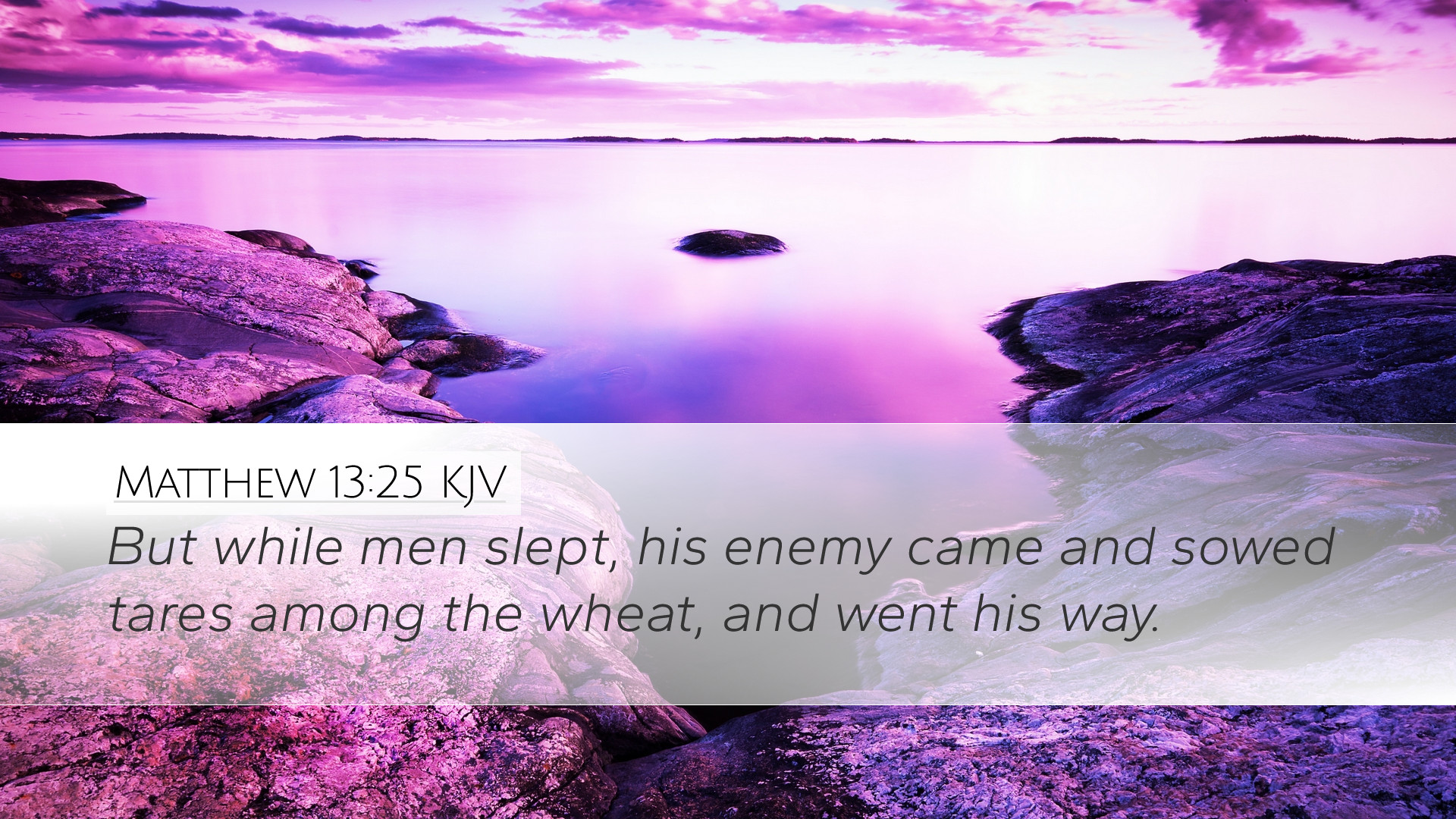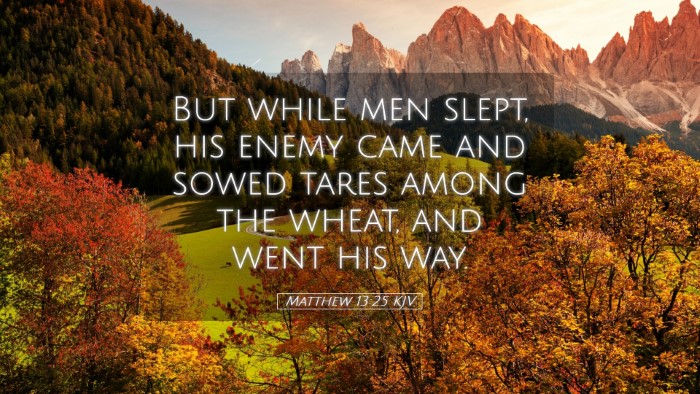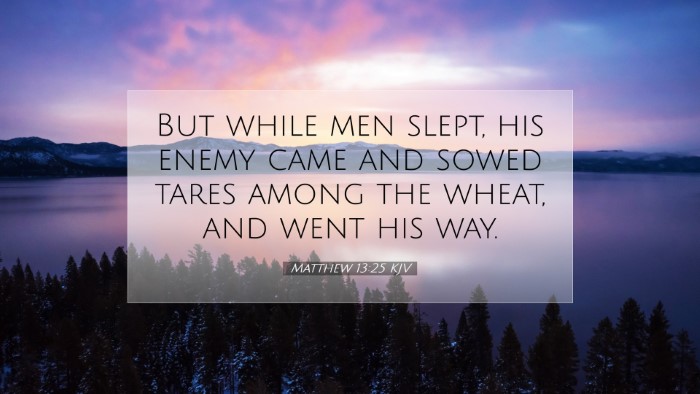Commentary on Matthew 13:25
Matthew 13:25 states, "But while men slept, his enemy came and sowed tares among the wheat, and went his way." This verse provides profound insights into the nature of spiritual warfare, the responsibilities of the faithful, and the consequences of negligence in the believer's life.
Context of the Parable
This verse comes from a parable Jesus told concerning the Kingdom of Heaven, illustrating the coexistence of good and evil within it. The context concerns not just the church, but humanity at large where good and evil will grow together until the time of harvest.
Understanding "While Men Slept"
The phrase "while men slept" is pivotal. Matthew Henry elucidates that this sleep may signify several aspects:
- Spiritual Lethargy: It signifies a state of inactivity or complacency in the spiritual realm. Much like soldiers who lay down their weapons, believers must always be vigilant, staying alert against the subtle encroachments of the enemy.
- Negligence: Albert Barnes posits that this sleep represents a neglect of duty. It cautions believers to keep their hearts and churches guarded against the sly strategies of the enemy who seeks to undermine faith and community.
The Role of the Enemy
Here, the enemy represents the devil, who is ever vigilant and seeking ways to disrupt God’s plan. Adam Clarke notes that:
- Like a thief, the enemy is cunning and works secretly to sow discord and confusion among the faithful.
- The act of sowing tares among the wheat highlights the destructive strategies employed by Satan, designed to hinder spiritual growth and unity.
Symbolism of Wheat and Tares
The wheat symbolizes the true believers and the tares, or weeds, represent false believers or evildoers within the church. Matthew Henry elaborates on this symbolism, emphasizing:
- The challenge of distinguishing between the two before the harvest, which symbolizes the final judgment.
- The patience required of believers, who must endure the presence of evil while maintaining their own purity and commitment to God.
The Consequences of Inaction
The inaction of the men, who "slept" rather than guarding their fields, leads to significant consequences. This speaks to the need for vigilance in pastoral duties:
- Pastors must maintain a watchful eye over their congregation, recognizing that complacency can lead to a greater infiltration of evil.
- The community of believers collectively bears the responsibility to awaken and lead in prayer and spiritual preparedness.
Lessons for Today’s Believers
There are several key takeaways for modern readers and scholars from this verse:
- Spiritual Vigilance: Believers are called to remain alert and watchful in their spiritual lives, recognizing that danger often arises when they least expect it.
- Community Responsibility: The nature of the church is one of interdependence. Just as wheat and tares grow together, believers have a role in each other’s spiritual well-being.
- Hope in Judgment: Ultimately, the parable reassures believers that God will bring about justice. The harvest symbolizes the final judgment where separation will occur, highlighting God’s sovereignty over the church and history.
Conclusion
Matthew 13:25 serves as a timeless reminder of the reality of spiritual warfare, the importance of vigilance, and the hope that God offers through His ultimate justice. The teachings of Matthew Henry, Albert Barnes, and Adam Clarke resonate with the essentials of pastoral care and personal holiness.


